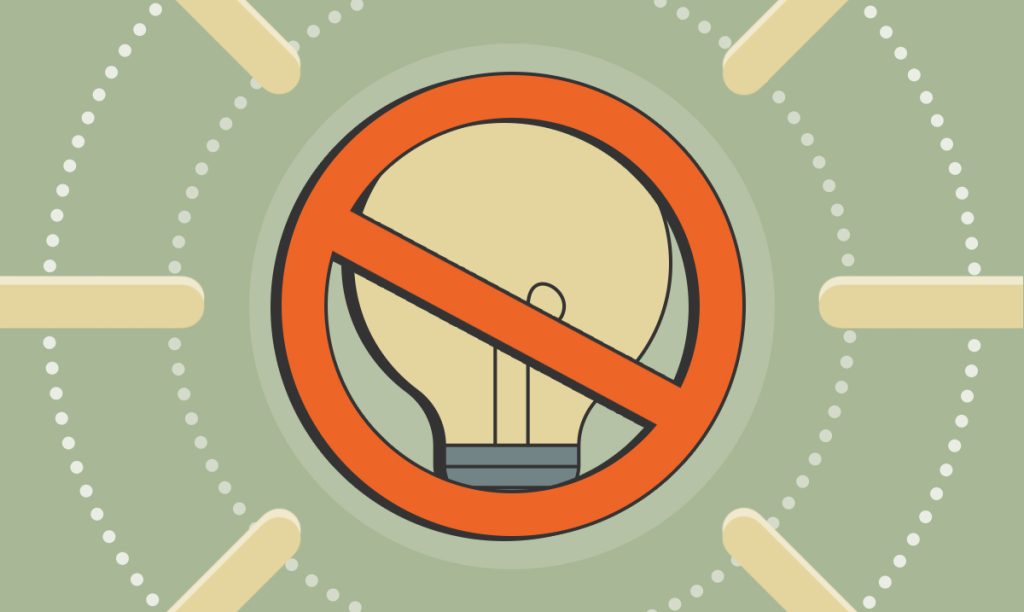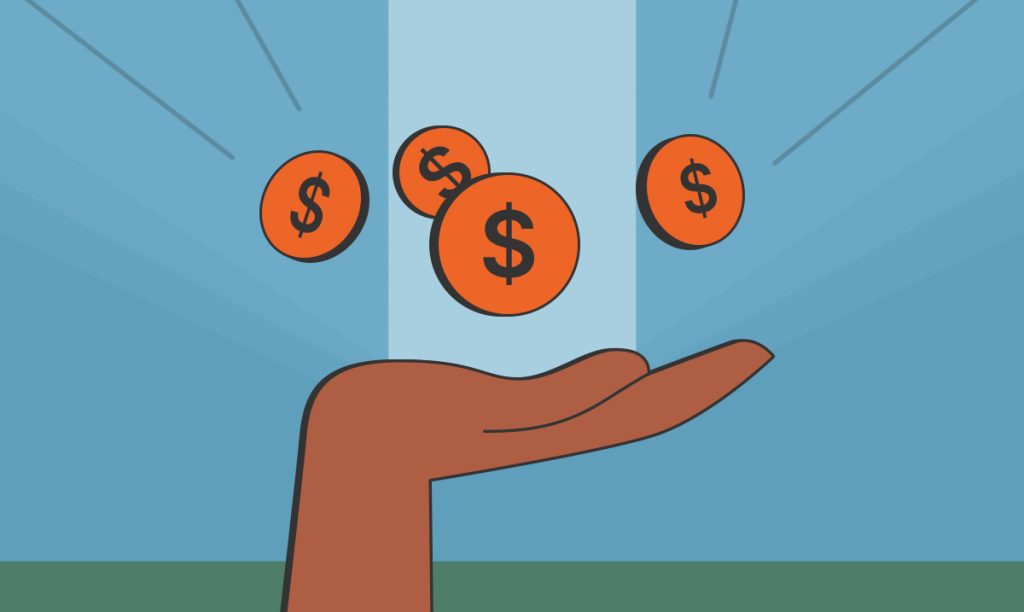What to do if you’re itching to start a business, but that perfect idea just doesn’t come to mind? Luckily for you, we have an answer (or rather ...
Importance of Sustainability in Modern Business
Written by: Carolyn Young
Carolyn Young is a business writer who focuses on entrepreneurial concepts and the business formation. She has over 25 years of experience in business roles, and has authored several entrepreneurship textbooks.
Published on June 12, 2024

Your business could do much more than just rake in profits. It could make a meaningful impact on our beautiful planet. Nowadays, sustainability is becoming a huge deal in the business world, regardless of the industry, and you should jump on the train. But how? Well, that’s where the advice we’ve gathered from experts comes in!
Let’s turn green into gold!
Driving Fashion Business Success through Sustainability Initiatives
Using sustainable methods means you’re not just using up resources but keeping them around for longer. This is super important for any business that wants to last. At HONGYU, our Eco-Fabric Project meant switching to organic and recycled fabrics. In turn, it saved us about two million yuan from supply chain problems just last year.
People now care a lot about the environment, and companies that go green tend to inspire more trust and have more loyal customers. When we started our Eco-Wear Line for eco-conscious customers, our sales really went up.
Aiming for sustainability can lead to lots of new (and eco-friendly) products and ways of doing things. This opens new doors in the market while also putting companies at the cutting edge. We started using less water in our dyeing process and got more energy-efficient machines. This move didn’t just cut our costs by 1.5 million yuan every year but also reduced how much we’re impacting the environment by 150 tons.
Being sustainable also improves how people see your brand because it shows you care about more than just making money. Our Eco-Ambassador Program, where we worked with eco-conscious influencers, really boosted how people see us. We saw a 50% jump in our social media interactions, which solidified our place as a leader in sustainable fashion.
Sustainable Product in Sustainable Packaging
Our business is built on sustainability, offering sustainably sourced spring water in the most sustainable packaging. We have also proven that such a company can be financially sustainable and continue to grow at double-digit rates MoM profitably.
I have worked as an engineer for the largest bottling companies and understand packaging waste, recycling challenges, and the financial burden of “sustainability” in a way most consumers do not.
Those challenges, however, can be managed, business practices can be adapted, and mindsets can be changed. We have learned to provide a “solution” to our customers with their own sustainability goals rather than some commodity product. When that mindset is achieved, the cost becomes less important.
Mark Majkrzak, founder of RAIN Bottling Company
Recruiting and Retaining Top Talent
So many businesses are struggling with skilled talent shortages, but those that build sustainably are having a much easier time. We know that consumers demand more sustainable businesses — and those consumers are also your potential employees. People don’t want to work for businesses that don’t take environmental and social responsibility seriously.
This is especially the case with in-demand talent, with many eager employers to choose from. As younger generations hit the workforce, the demand for sustainable workplaces will only increase. Sustainability attracts better talent to a business and keeps them invested in its success over the long term.
Robert Kaskel, chief people officer at Checkr
Aviation Sustainability
One industry that is significantly under threat right now from sustainability is aviation. The only point I would make is stakeholder agreement. Every industry has stakeholders that — one hopes — work toward the sustainability of that sector. Aviation is fragmented because one stakeholder (the airlines) is responsible for 100% of the emissions. The other stakeholders — OEMs (Boeing/Airbus), airports, lessors, ANSPs, and banks, don’t really want to know or only want to wait for (and fight) regulations that balance the scales correctly. When the aircraft flies, all the stakeholders win. But the airlines are the ones that will end up with the tab/tax, which will be passed onto the consumers, leaving the other stakeholders to enjoy their margins.
Darren Finucane, founder & editor of WingTalkers
Sustainable Practices in Property Development
When it comes to real estate nowadays, going green is anything but small potatoes. We’re talking total game-changers. Sustainable building and operations are make-or-break for long-term success.
Eco-friendly spaces are blowing up on home hunters and investors’ priority lists, with the planet at the top of their minds. We’re talking about energy-efficient designs, renewable materials, water conservation — the whole shebang.
Striving for greener properties seriously motivates innovation, too. Pushing for lower footprints makes developers cook up new technology and construction methods. Very often, efficiency increases, and costs decrease too over time. It’s a win-win.
On top of demand and innovation, sustainability is becoming non-negotiable for legal compliance. Regulations and standards ask for it more and more. Ignoring that path is leaving money on the table through penalties down the road.
If real estate players don’t fully commit to going green these days, they’re shooting themselves in the foot long-term. Consumers want it, innovation thrives on it, and regulators demand it.
Dan Belcher, CEO of Short Sale RE
Beyond Sustainability — Regenerativity
Sustainability (keeping things from getting worse) is crucial— but it’s only the first step. Customers and employees are demanding that business doesn’t stop there but actually take initiatives to fix our biggest problems — to develop and market profitable products/services that turn hunger/poverty into abundance, racism/otherism into social equity, war into peace, and catastrophic climate change into planetary balance. Smart businesses that want to stay relevant are beginning to address this need. Businesses that ignore it will become less and less relevant and watch their market share decline.
Shel Horowitz, The TransformpreneurSM at Frugal Fun/Frugal Marketing (TEDx Talk)
Operational Efficiency and Long-Term Viability
Examining efficiency measures in all areas and at all phases of business operations (including energy, raw materials, factories, etc.) is often necessary to reduce environmental impact. Resource conservation, reduction, reuse, and recycling are some of the circular economy strategies that many businesses are investigating and choosing. The adoption of more cost-effective solutions, the reduction of waste and energy consumption, the integration of sustainability throughout supply chains, and behavioral changes all demonstrate how cost savings and operational efficiency are closely linked to the shift toward sustainability.
In order to be sustainable, businesses typically need to make major changes to their supply chains, manufacturing procedures, and other business model components and measures, such as lowering travel distance, conserving water, and converting to cleaner & smarter energy.
One of the strongest arguments for adopting sustainability for businesses is definitely the long-term viability. Using sustainable methods guarantees the effective use of resources, cutting down on waste and operational expenses. This protects against resource scarcity in the future (in addition to improving the bottom line).
Steve Feiner, CEO of ABF Group
Improved Brand Image
ESG (environment, social, and governance) measurements are frequently used to assess an organization’s sustainability and ethical standing. In the medium and long term, companies with strong ESG ratings consistently beat the market. Sustainability tactics may require an initial investment, but they pay off in the long run.
When choosing which products or services to buy, more and more people take into account a company’s social and environmental impact, and they favor businesses that follow sustainable practices. According to the UK’s most recent study on sustainability and customer behavior, 28% of customers no longer purchase particular products because of ethical or environmental issues. Among Generation Z (those born after 1997), the number even rises to 45%. This trend is expected to grow, and businesses will need to adapt to the changing demands of their clientele.
Astute businesses are realizing the advantages that come with being among the first to embrace business sustainability. According to a 2023 survey, 84% of business leaders believe that achieving climate change targets and global economic growth is possible, and 75% of them claim their organizations have raised their sustainability spending in the last year. These stats suggest that the industry will likely take action in unison. Instead of running the risk of falling behind, businesses that make the transition to a (more) sustainable model have the opportunity to really stand out.
Hannah Sanderson, founder & CEO of Clever Canadian
Sustainable Practices in AED
Sustainable practices now form an integral part of strategic planning and operations. In fact, recent data reveals that a resounding 85% of businesses are actively pivoting to more sustainable business models. The transition addresses a strategic realignment with consumer expectations, too. It shows that 34% of consumers will pay a premium for sustainable services and products.
In the AED training sector, we interpret this as investing in eco-friendly materials, curtailing waste, and guaranteeing responsible production and disposal of our life-saving equipment. So, our pledge to sustainability underlines our commitment to preserving life — across all facets of our global ecosystem.
Sustainability is a crucial element for enduring profitability and reputation in the contemporary corporate landscape. Notably, reports indicate that sustainable business models might unlock economic prospects valued at $12 trillion by 2030 across four key sectors: food and agriculture, cities, energy and materials, health and well-being.
Within the AED training industry, this responsibility mandates adopting (and advocating) practices safeguarding both our clients’ and the community’s welfare. That way, we also gain recognition as clients increasingly seek partnerships with companies that exhibit a genuine commitment to environmental stewardship.
Our determination to embed sustainability into every facet of our operations sends a clear signal to stakeholders: We are future-ready and dedicated to positively impacting society and the environment!
Mark McShane, managing director of AED Training
Revolutionizing the Automotive Industry
The automotive industry, with its resource-intensive nature, has a crucial role to play in building a greener future. I see sustainability not as an optional add-on but as the driving force, and I can share how we implement them in business.
We kicked off this approach with electric cars, using recycled stuff and creating systems where nothing goes to waste. Now, we’re teaming up with new companies into green tech, bringing recycled materials into our ways of doing things, and always looking for ways to make less impact on the environment. It’s about making sure what we do is good for the planet. From using electric cars to finding clever ways to use recycled materials, we’re making choices that help keep things green and clean. It’s a journey of always finding better ways to do things.
Sustainability is an investment in the future!
Nick Robinson, co-founder of PickandPullsellcar
Bottom-Up Approach in Ethical Production and Meeting Customer Demand
Sustainable practices are already becoming the standard among many industries, and it will probably be the only way to do business in about 10 years. So, businesses need to implement their change plans as soon as possible because sustainability is a long-term project.
Sustainability is about limiting the impact on the environment and about innovating complex processes to make them more efficient and cost-effective. We recently began using IoT devices to track our materials through the manufacturing process. It doesn’t require heavy computation and constant monitoring. So, it’s good for the environment, and it’s more efficient.
The current trend of customers wanting sustainable products may fade, but sustainability is also about meeting customer demand without sacrificing ethical production. It could help if businesses thought of sustainability as a bottom-up process. It all begins with manufacturing.
Anders Blomqvist, co-founder of Cannabiva
Rethinking Corporate Swag to Address Landfill Concerns
Corporate swag is a detriment to our landfill problem. While many businesses are focused on attending trade shows and expos to network and make valuable connections, the typical approach is to offer a multitude of corporate swag items in the hopes of making lasting connections.
But does it actually work?
To avoid being part of the landfill problem (because, let’s be honest, most people throw away the swag they collect from trade shows), I recommend either purchasing swag items made from recycled materials, allowing people to select their gifts, or providing an experience at your booth that doesn’t require printing and gifting cheap items.
Eric Ritter, president & owner of Digital Neighbor
Minimizing Plastic Packaging
Environmental innovators are constantly looking for solutions to help remediate the environmental crisis. The latest flexible packaging innovations are incorporating eco-conscious strategies to elevate conservation and environmental efforts worldwide.
AeroFlexx takes the best attributes of flexible and rigid packaging to create an all-in-one, eco-friendly packaging solution. The package is engineered with airframe technology, meaning it uses air — not plastic — to create a revolutionary structure that maintains shape without compromising structural rigidity as it remains flexible, preserving performance.
One of our business strategies is simplifying the supply chain through compact packaging, and we do this by cutting out the need for any secondary shipping components (such as bubble wrap and packing peanuts). Right off the production line, the AeroFlexx Pak is hermetically sealed, tamper-proof, and ready for omnichannel distribution. This decreases costs and the environmental impact at the same time.
Production and filling are also 10 times more energy-efficient than that of traditional bottles because they use less electricity for day-to-day operations and production. With manufacturing based on source reduction, the production process also enables circular recyclability throughout the packaging lifecycle.
Another great strategy is lowering the plastic content to minimize waste, which can help curb plastic pollution. AeroFlexx incorporates up to 50 percent recycled content. Our goal is to eventually reach 100 percent recycled content.
All of this can contribute to lower greenhouse gas emissions and energy consumption, and it addresses waste-to-landfill output to drive environmental efforts.
Andy Meyer, the CEO of AeroFlexx
The Crucial Role of Clean Indoor Air in Modern Startups
Eco-friendly and sustainable practices will be key for startup businesses in 2024 for two main reasons: the health and welfare of employees and their productivity.
Office indoor air quality, an afterthought before COVID, has now become a priority for all executives who seek improved wellness and sustainability. One way to encourage office wellness and increase productivity is to be sure employees are breathing clean indoor air in the workplace. This can easily be done by investing in and installing clean indoor air technology in your office building heating & air conditioning system and including 24/7 monitoring technology to measure office air quality.
According to a Future Workplace survey, employee wellness, productivity, and engagement are impacted by poor indoor air quality in an office building. In a Harvard University study, IAQ had a profound impact on the decision-making performance of workers and cognitive function scores were significantly higher under green building conditions compared to conventional building environments.
For all these reasons, startup businesses will continue to seek and invest in sustainability in the new year and beyond.
Tony Abate, vice president & chief technology officer at AtmosAir Solutions
Building a Brand Around Sustainability
When businesses learn to leverage sustainability as a driver of innovation, that’s where the magic happens. Some of the best examples of this are startups and small businesses that started with sustainability in mind and then built up a compelling brand around it. The sustainable toilet paper company Who Gives A Crap is one of my favorite examples — their plastic-free rolls come wrapped in paper, and they leverage this unique packaging to the max: eye-catching designs, engaging on-brand copy, and even interactive special edition designs.
Linsey Nancarrow, creative director & sustainable innovation consultant at Indigo Slate
Culinary Innovation and Environmental Responsibility
At Zoop, we strive to redefine the train food experience by offering delicious and innovative culinary options. However, we also believe in responsibly sourcing our ingredients, reducing food waste, and minimizing our carbon footprint. Through partnerships with local farmers and suppliers, we can support local economies while promoting sustainable agriculture.
By embracing sustainability, we can make a positive impact on the world around us. It’s our duty as business leaders to pave the way for a more sustainable future. Together, we can create a journey on the rails that not only satisfies our taste buds but also nourishes our planet.
Puneet Sharma, founder of Zoop
Sustainable Investing
When companies align with their individual environmental, social, and governance priorities, they can manage investment risks better. Besides that, they can streamline their decision-making approach better, complete actionable cost optimization moves, and improve their brand reputation. Investors find that more profitable.
For most investors, maximizing competitive returns with their investment portfolio is the primary motivation. Investment products that integrate sustainability features and align with ESG factors cohesively assure more long-term financial and social gains. This is why the relevance of sustainable investing is growing more apparent in the modern corporate climate.
Lyle Solomon, principal attorney at Oak View Law Group
Use Less Paper
Sustainability is crucial in today’s corporate landscape for any kind of business to succeed, as well as to meet the moral and environmental demands of both employees and customers.
If a business can continue to operate as a net positive to the environment and economy — it’s simply healthier for every stakeholder. It does sound cliche. However, if every business had a net positive environmental impact, the world would certainly be a better place to be, which means using renewable and environmentally conscious practices wherever possible.
The inspiration for SwipedOn came from my time working on a superyacht. We used a paper visitor book, and I thought there had to be a better way. SwipedOn’s visitor management software allows for a more sustainable way to keep track of visitors to a business.
Making sure the product is sustainable and has a model that can continue to grow as the world evolves ultimately leads to success!
Hadleigh Ford, CEO of SwipedOn
Subscribe to Our Newsletter
and gain insider access to cutting-edge business insights and trends.
Featured Resources

I Want to Start a Business But Have No Ideas
Published on August 7, 2024
Read Now

Customer Relationship Management Best Practices
Published on July 30, 2024
Customer relationship management (CRM) is no longer just a transactional process. Now, it’s a must for any business looking to thrive in thiscusto ...
Read Now

Funding Solutions for Small Businesses
Published on July 30, 2024
Starting a small business is more than just a dream; it’s a bold leap into innovation, passion, and resilience. Yet, one of the most dauntingchall ...
Read Now
Comments